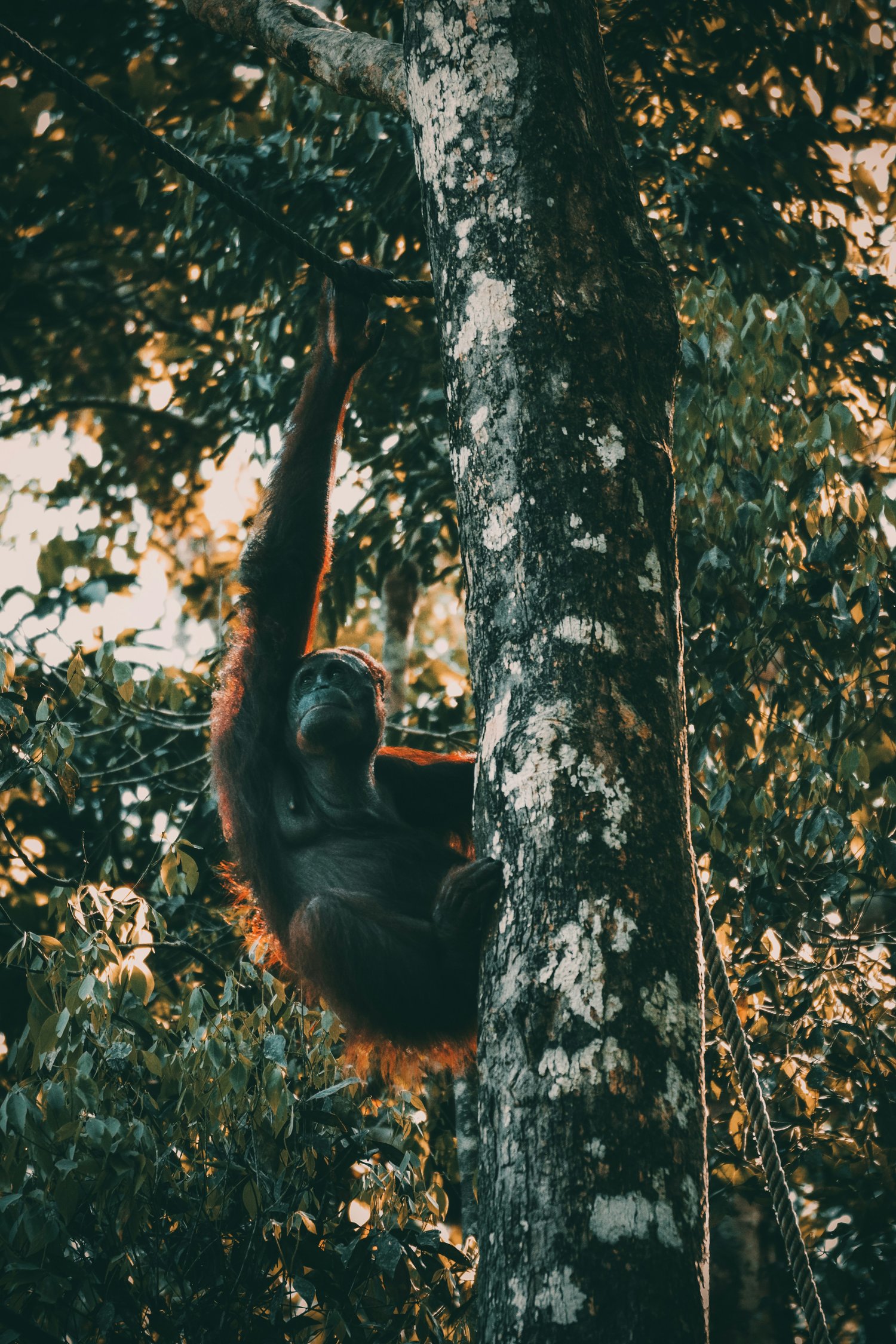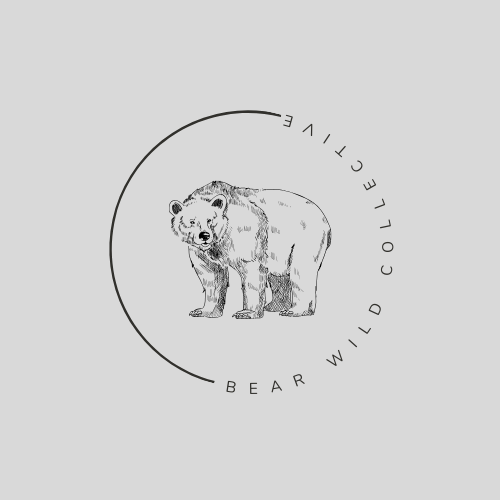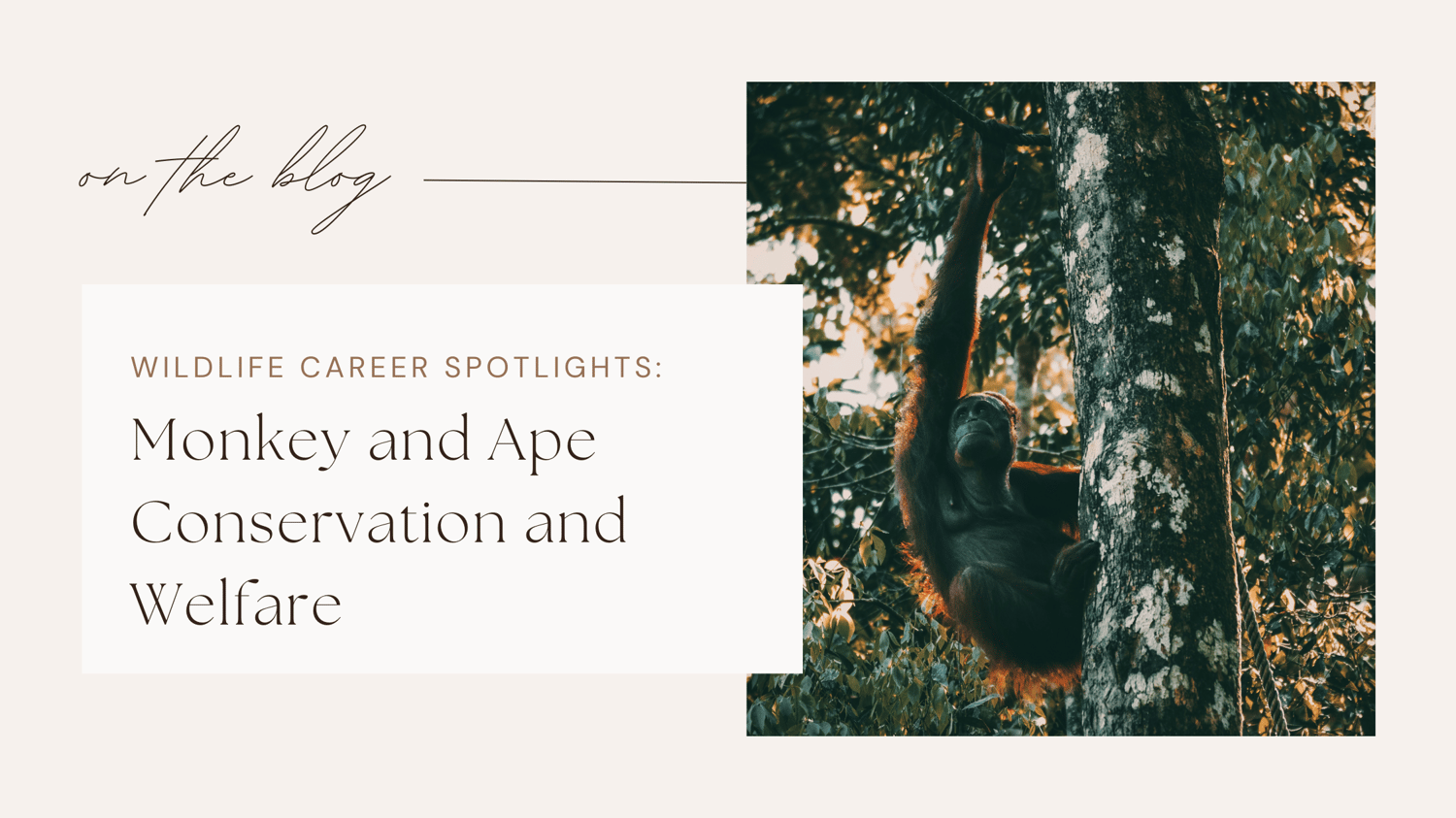Primatology, the study of primates (monkeys, apes, lemurs, bush babies, lorises, and tarsiers), offers a wide range of career opportunities for those passionate about understanding the behavior, ecology, and conservation of our closest animal relatives. Primatologists play a key role in both the scientific understanding of primates and in the efforts to conserve their species. Career paths in primatology are diverse, ranging from field research and conservation management to education and policy advocacy. Below are some examples of career opportunities within this field, as well as key organisations and university research groups that offer opportunities for aspiring primatologists.
To explore more unique career options in the wildlife sector, take a look at our Wildlife Career Accelerator and Wildlife Work Directory.

[Credit Deva Darshan]
Field Assistant
One of the most well-known career paths in primatology are those that work in the field collecting data and tracking primates. Field researchers spend much of their time in the natural habitats of primates, studying their behavior, social structures, and ecological roles. This may involve tracking and observing primates in forests, savannas, or other habitats, often using methods such as video surveillance, GPS tracking, and behavioral analysis. The role requires not only a deep understanding of primate biology but also practical skills in wildlife monitoring and data collection. Field researchers also study how human activities, habitat loss, and climate change impact primate populations. Some may focus on specific species, like gorillas or orangutans, while others study broader trends in primate evolution and behavior.
Primate Conservationist
Primate conservationists focus on protecting endangered primate species and preserving their habitats. These professionals often work in the field but may also engage in policy development, community engagement, and education efforts to protect primate populations. Conservationists collaborate with local governments, NGOs, and communities to implement anti-poaching initiatives, habitat restoration, and sustainable development practices that reduce human-wildlife conflict. Conservation roles in primatology also include managing and working in wildlife sanctuaries, where rescued or rehabilitated primates are given a second chance at life in environments that mimic their natural habitats.
Primate Behavior Specialist
Primate behavior specialists study how primates interact with one another, their environment, and humans. These experts delve into topics such as communication, social structure, tool use, parenting behavior, and problem-solving abilities. Behavior specialists often work in labs or zoos, where they conduct experiments or observe primate behavior to answer fundamental questions about cognition and social organisation.
University Researcher
For those who enjoy teaching and contributing to academic knowledge, a career as a university researcher specialising in primatology may be an ideal path. These professionals engage in both research and teaching, often directing student research projects, publishing scientific papers, and leading field studies. Primatology research groups at universities often work on a range of topics from evolutionary biology to animal welfare, with opportunities to mentor graduate students and influence the next generation of primatologists.
Key Organisations
Several global organisations are at the forefront of primate research and conservation, offering career opportunities for aspiring primatologists:
- The Jane Goodall Institute: Founded by renowned primatologist Dr. Jane Goodall, this organisation focuses on the conservation and welfare of chimpanzees and other primates. They run several field projects around the world, offering roles in research, education, and advocacy.
- International Primatological Society (IPS): This global network of primatologists promotes research and conservation efforts through conferences, publications, and collaborations. IPS offers numerous opportunities for networking, research grants, and career development for those in the field.
- World Primate Society (WPS): This organisation is dedicated to the care and conservation of primates. The WPS supports research, captive breeding programs, and rehabilitation efforts for primates worldwide. They also focus on raising awareness about the threats facing wild populations.
- Monkey World: A 65-acre ape and monkey sanctuary, rescue center and primatarium in Dorset, UK.
- The Monkey Sanctuary/Wild Futures: Wild Futures is the only UK primate welfare and conservation charity rescuing, campaigning, educating and providing sanctuary to primates in need. Wild Futures also runs a primate rescue facility in Cornwall, UK, where primates rescued from captivity (most often the pet trade and circuses) are rehabilitated and cared for.
Several universities are known for their primatology programs and research groups, offering opportunities for graduate students and professionals to contribute to cutting-edge studies in the field:
- University of California, Davis (Primate Research Center): UC Davis offers opportunities for students to engage in groundbreaking research on primate behavior, health, and conservation through their renowned Primate Research Center.
- Oxford University (Primate Research Group): The Primate Research Group at Oxford focuses on primate cognition, behavior, and evolution. They often collaborate with conservation organizations and offer programs for students interested in studying primates in the wild and in captivity.
- Emory University (Yerkes National Primate Research Center): Emory’s research center offers a wide range of opportunities for students and professionals to study primate behavior, genetics, and disease. It’s one of the leading centers for primate research in the U.S.
- Max Planck Institute for Evolutionary Anthropology: Based in Germany, this institute is a hub for studying primate cognition and behavior. Max Planck conducts field studies on great apes, monkeys, and other primates, providing opportunities for collaboration on both conservation and behavioral research.
Primatology offers a variety of career opportunities for those passionate about studying and protecting primates. Whether working as a field researcher, conservationist, or educator, professionals in this field contribute to a deeper understanding of primate behavior and the protection of endangered species. Organisations like the Jane Goodall Institute, the International Primatological Society, and research groups at universities such as UC Davis, Oxford, and Emory provide invaluable opportunities for individuals pursuing a career in primatology. The field continues to evolve, with an increasing focus on both scientific discovery and the urgent need for conservation, offering exciting and meaningful careers for future primatologists.



